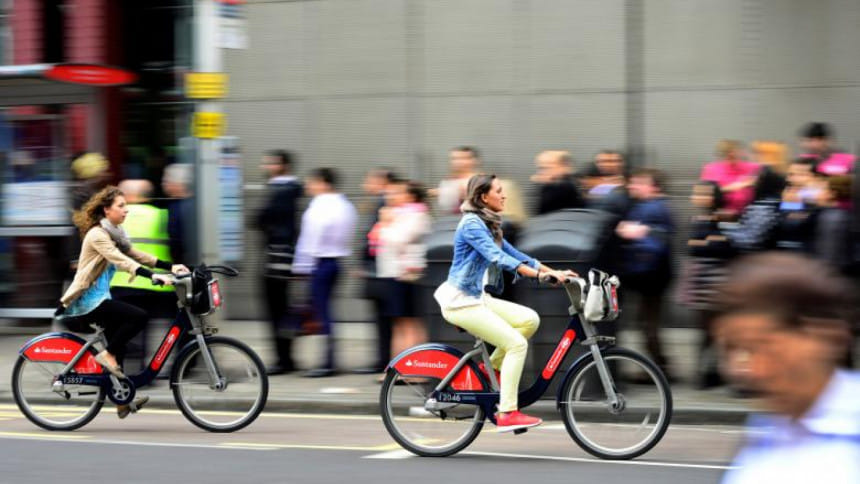Cycling to work can reduce stress

New Canadian research has found that cycling to work can help get your day off to a better start, reducing stress and even boosting work performance.
Carried out by researchers from Concordia's John Molson School of Business, the study set out to look at how different forms of commuting -- cycling, driving a car and taking public transport -- affected stress and mood at work.
The team collected data from 123 employees at Autodesk, an information technology company in Old Montreal, using a web-based survey.
Participants were asked to respond to questions about their mood, perceived commuting stress and mode of travel.
However, the team only assessed questionaires that were completed within 45 minutes of arriving at work, to get a more precise picture of stress levels and mood upon arrival at work. If the answers were completed later, other stressors that occurred during the day could affect the results.
READ MORE: 5 Benefits of Cycling
The questionnaire also differentiated between perceived stress and mood, which is a short-term state affected also by personality traits and emotions.
The results showed that cycling to work not only was a good way to start the day, and but also helped cyclists to have a better day in general.
"Employees who cycled to work showed significantly lower levels of stress within the first 45 minutes of work than those who travelled by car," explained lead author Stéphane Brutus.
"Recent research has shown that early morning stress and mood are strong predictors of their effect later in the day. They can shape how subsequent events are perceived, interpreted and acted upon for the rest of the day."
The findings also confirmed the team's previous research, which found that cyclists perceived their commute as being less stressful than those who traveled by car.
However, the study did not find any difference in the effect of different forms of transport on mood.
Although 6 percent of Canadians cycled to work in 2011, and the number is growing, Canada still falls behind many European countries.
Brutus now believes that public policy-makers should use the benefits of cycling to encourage more people to get on their bike.
The findings can be found published online in the International Journal of Workplace Health Management.

 For all latest news, follow The Daily Star's Google News channel.
For all latest news, follow The Daily Star's Google News channel. 




Comments